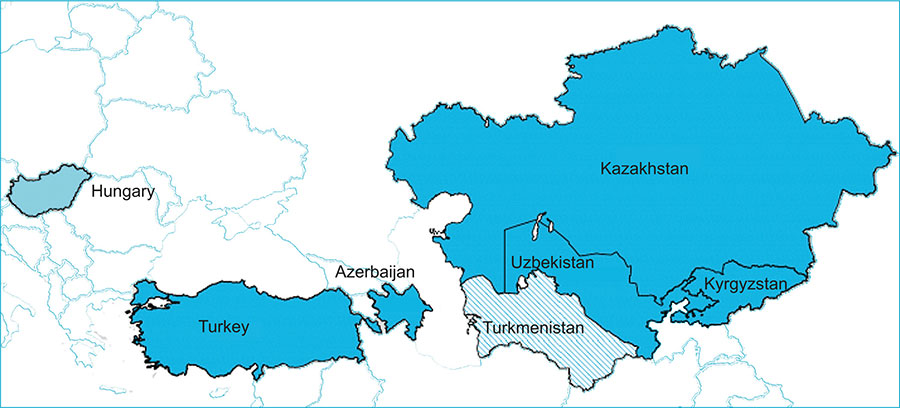Organisation of Turkic States Rebranded With Intention To Balance Central Asian Politics
Renewed Turkic regional emphasis will be of concern to China, Russia, the EU and United States depending on which way Ankara decides to point
The Turkic Council has rebranded itself as the Organization of Turkic States, (OTS) with members Turkey, which is home to its general secretariat in Istanbul, Azerbaijan, Kazakhstan, Kyrgyzstan, and Uzbekistan, along with observer states Turkmenistan and Hungary all pledging a renewed effort to enhance cooperation on combating international terrorism, separatism, extremism, and cross-border crime, as well as promote trade and investment in the region.
This is seen in part to improve Turkic influence in Central Asia, partially in response to China’s Shanghai Cooperation Organisation (of which Turkey is a dialogue partner), Russia’s trade bloc the Eurasian Economic Union, and to give OTS members a greater influence over regional security and reconstruction of Afghanistan.
The OTS is an intergovernmental organization whose main goal is promoting comprehensive cooperation among Turkic speaking peoples and nations. It was originally founded in 2009. Turkmenistan is not a full member of the council due to the country preferring a policy of neutrality, however it is an observer.

An enhanced, new emphasis from the OTS however may not sit well with China, whose Uyghur population in Xinjiang are classified as Turkic and who to some extent elicit some sympathy from Istanbul. Turkish President Recep Tayyip Erdogan has expressed his concerns about the treatment of Uyghurs when dealing with China. In July, during a telephone call with his Chinese counterpart Xi Jinping, Erdogan highlighted that Uyghurs in China should live freely and as “equal citizens”, after refusing to extradite a prominent Uyghur activist leader Beijing said was suspected of terrorism. China will be watching closely to see if the OTS becomes a platform for the separatist East Turkestan group – classified as terrorists by Beijing.
Russia too will have reservations, as a collected infrastructure and trade effort by the OTS could impact on Russia’s regional trade. OTS member states have indicated the intention is to better develop Turkic regional trade than become involved in politics, however with OTS members Kazakhstan, Kyrgyzstan, and Uzbekistan all key parts of China’s Belt and Road orbit, some leeway will undoubtedly have to be afforded Ankara by Beijing – exactly Erdogan’s intent. On the other hand, and especially if Turkey shows signs of switching trade alliance from the EU to the EAEU, it could bring together a triumvirate of Ankara, Moscow, and Beijing as a triad to better influence and integrate Eurasian policy towards Brussels and the United States. An enhanced OTS is an interesting Eurasian development.
Related Reading
About Us
Chris Devonshire-Ellis is the Chairman of Dezan Shira & Associates. The firm assists British and Foreign Investment into Asia and has 28 offices throughout China, India, the ASEAN nations and Russia. For strategic and business intelligence concerning China’s Belt & Road Initiative please email silkroad@dezshira.com or visit us at www.dezshira.com





